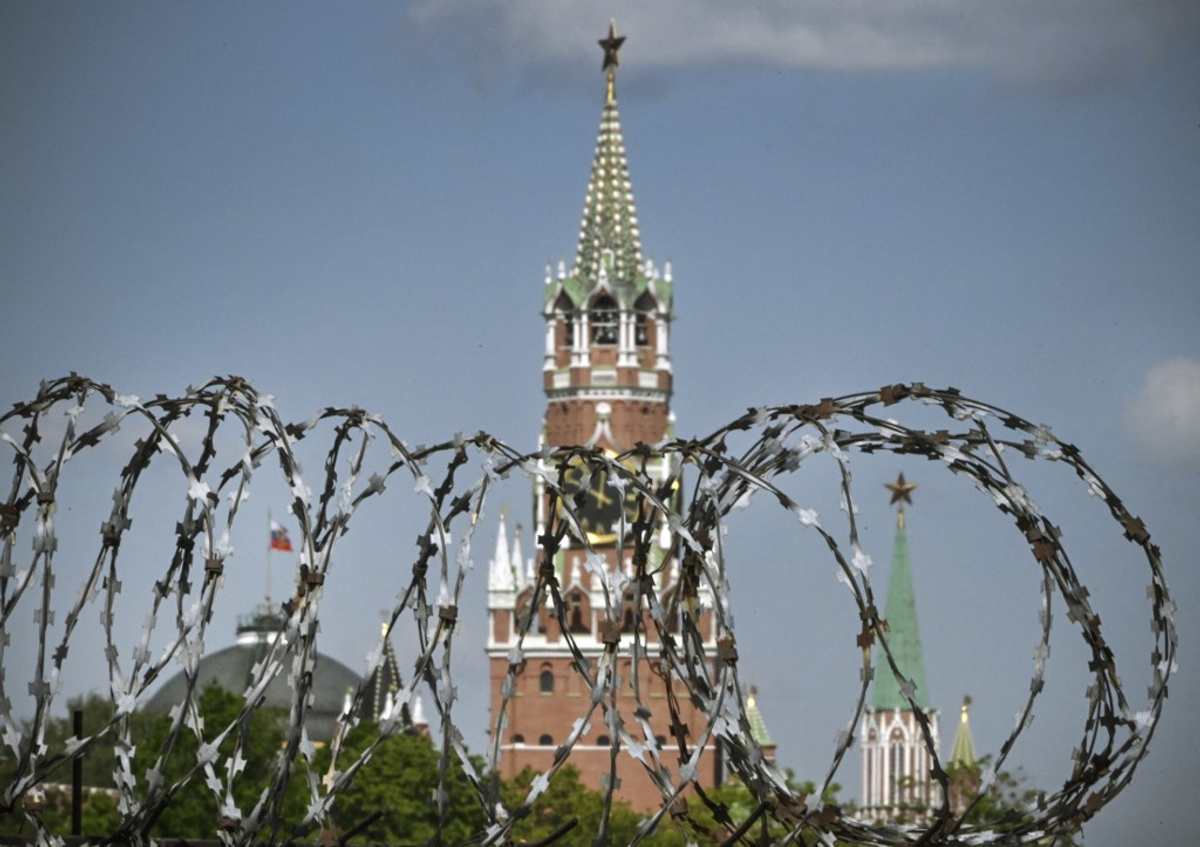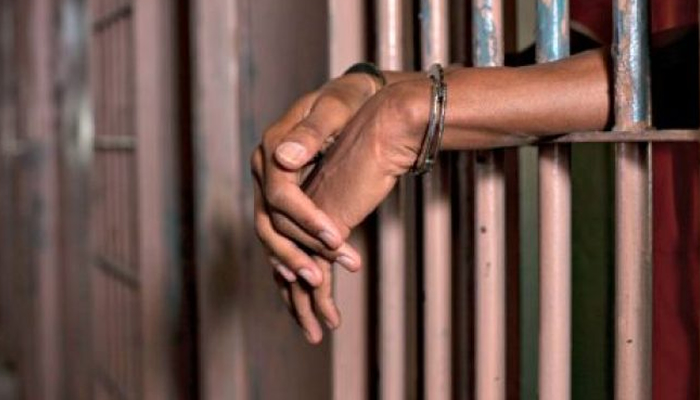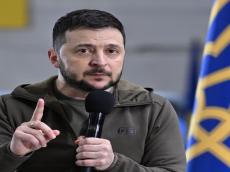Copyright kyivpost

Russia’s parliament, the State Duma, opened a debate on Tuesday that seeks to invoke harsher prison sentences for teenagers convicted of sabotaging government facilities, or helping others commit “terrorist” acts against the Russian state and its property. Unsurprisingly 419 out of 439 members present voted in favor of adopting the draft legislation. Vyacheslav Volodin, Duma Speaker and close associate of Russian President Vladimir Putin said in a speech that new, tougher laws against criminal teenagers were necessary “to protect Russian national security.” An explanatory note attached to the bill said the number of “sabotage cases” registered with Russian authorities had risen dramatically. In 2024 federal prosecutors convicted 48 people of conspiring to or actually attacking state infrastructure – usually with bomb or arson attacks. This compares with the period 2019-2023 when only 13 persons were found guilty of sabotage-related acts. The Duma routinely rubber-stamps bills supported by the Kremlin, especially if national security related. Age is no longer an excuse The new law would lower the minimum age from 16 to 14 years at which a person in Russia would be considered criminally liable under the “sabotage articles” – a section of Russian law that makes an act of sabotage or terrorism, aiding it, undergoing sabotage training or conspiring with others to commit it. Currently Russia’s sentence for carrying out such acts is ten years’ imprisonment, and eight years for conspiracy or planning. Other draconian measures in the draft bill include abolition of the statute of limitations for sabotage- and terrorism-related acts committed by a minor, a ban on release from imprisonment for prisoners not of adult age, and mandatory placement of a convicted teenager in a state penitentiary with adults. The bill’s language specifically excludes placement of a minor in a rehabilitation institution for youth and specifies sentences under the law may be neither shortened nor suspended. Aside from tougher criminal code targeting teenagers, the bill proposes a harsher penalty to adults helping an under-aged person to participate in sabotage or terrorism or conspire to do so: up to life imprisonment. What’s behind the increase – Ukrainian special operations? Judicial Department data cited by the independent Russian journalists Farida Rustamova and Maksim Tovkaylo in their Russian-language Telegram channel “Faridaily” links the spike in sabotage-type attacks against Russian state property to dissident youth opposing Moscow’s full-scale invasion of Ukraine and increasing authoritarian treatment against the Russian civil population at home. Confirmed sabotage attacks by youths prosecuted by Russian authorities include a 2023 fire set by two 14-year-old St. Petersburg region teenagers to a railroad relay box and the destruction of a military Mi-8 helicopter by fire set by two boys aged 13 and 14 in the central Siberian Yamalo-Nenets region, the Faridaily report said. Reportedly, they were recruited to carry out the attack, in exchange for five million rubles ($60,000) by Ukrainian special operations via Telegram. Details of the case were not made public, Rustamova and Tavkayalo reported. According to an Oct. 9 report in the independent Novaya Gazeta newspaper, and later confirmed by Russia’s state-controlled media RIA Novosti, authorities caught a 12-year-old girl attempting to set fire to a telecommunications box used by military units based in a Baltic Sea port city red-handed. Police statements cited in the article said she was contacted via Telegram by “Ukrainian handlers” and offered 300,000 rubles ($3,750) in exchange for the arson attack. Reportedly, she intended to use the money to buy a new iPhone but received none. Russia’s Federal Security Service (FSB) announced its operators had arrested a 16-year-old boy in the Black Sea port city Novorossiysk in September for conspiring to blow up a local military administration building with plastic explosives. FSB agents said they arrested the youth and found explosives, detonators, assembly tools and communications devices in his home. The suspect confessed his plan to interrogators and told them Ukraine’s Security Service (SBU) had recruited and promised to pay him, according to an FSB press release headlined “Ukrainian Hybrid Aggression” on Sept. 5. An August FSB statement accompanied by video and official statements claimed its personnel arrested three teenagers aged 15–16 in the central Saratov Region for setting fire to multiple railway facilities, including relay cabinets (electrical signal control boxes) and sections of track. They were charged with carrying out terrorist acts. Once again, the statement said the teenagers were recruited via Telegram by unidentified “Ukrainian handlers.” Ukrainian behind-the-lines agents have been active inside Russian Federation territory for years. According to official Kyiv statements sabotage-type attacks are carried out by commandos or special operators routinely – but not by children on Ukraine’s behalf. Russia thinks stricter control of the internet is the answer Russian lawmakers in July moved to restrict internet user access to anti-government platforms which Ukrainian agencies could monitor for possible agent recruitment. A Duma-passed law in July criminalized not just reading but searching for “extremist” content online – defined as content supporting Ukrainian resistance to the Russian invasion or describing Russian state policy or leadership as authoritarian. In August Putin signed a law authorizing penalties for persons or businesses promoting Virtual Private Networks (VPNs) to bypass state-monitored servers, partial blocking of the WhatsApp and Telegram messaging apps, and bans on Signal, Discord, and Viber messaging apps that had failed to open their communications traffic to Russian official oversight. Real partisans and special forces activity There has been a spike in successful clandestine attacks, usually by bombings or fires set, against Russian war-making capacity or Russian military personnel, by unidentified persons in recent months. One of the better-documented strikes was reported on Oct. 11 by the partisan group Atesh. The group claimed its behind-the-lines operators successfully attacked a railway hub in Russia’s Chuvashia region in the Volga River basin, using explosives laid on railroad tracks. Chuvashia security officials admitted the action had paralyzed train routes, derailed multiple trains and delayed dozens more. Atesh said the route was heavily used by Russian army supply trains. On Oct. 23 massive explosions hit and set fires destroying more than half of the Rostec Plastmass ammunition plant, and an adjacent munitions depot, in an incident local authorities blamed on a Ukrainian special operation. Some news reports said Ukrainian commandos (possibly with inside help) had infiltrated the facility in the town of Kopeysk, Chelyabinsk region setting off explosive devices placed on the factory floor. Detonations and fires visible for kilometers around killed thirteen, injured at least 68 and stopped production, reports said. Neither the FSB nor Ukrainian government agencies have commented on the incident. Chelyabinsk Governor Alexey Teksler in a statement made on the day the ammunition factory exploded said “A drone attack is out of the question. All circumstances are being investigated.”



